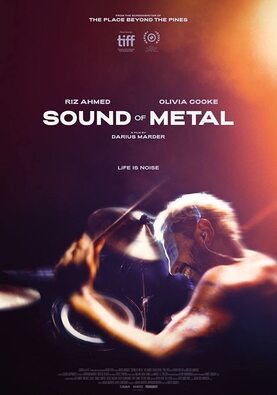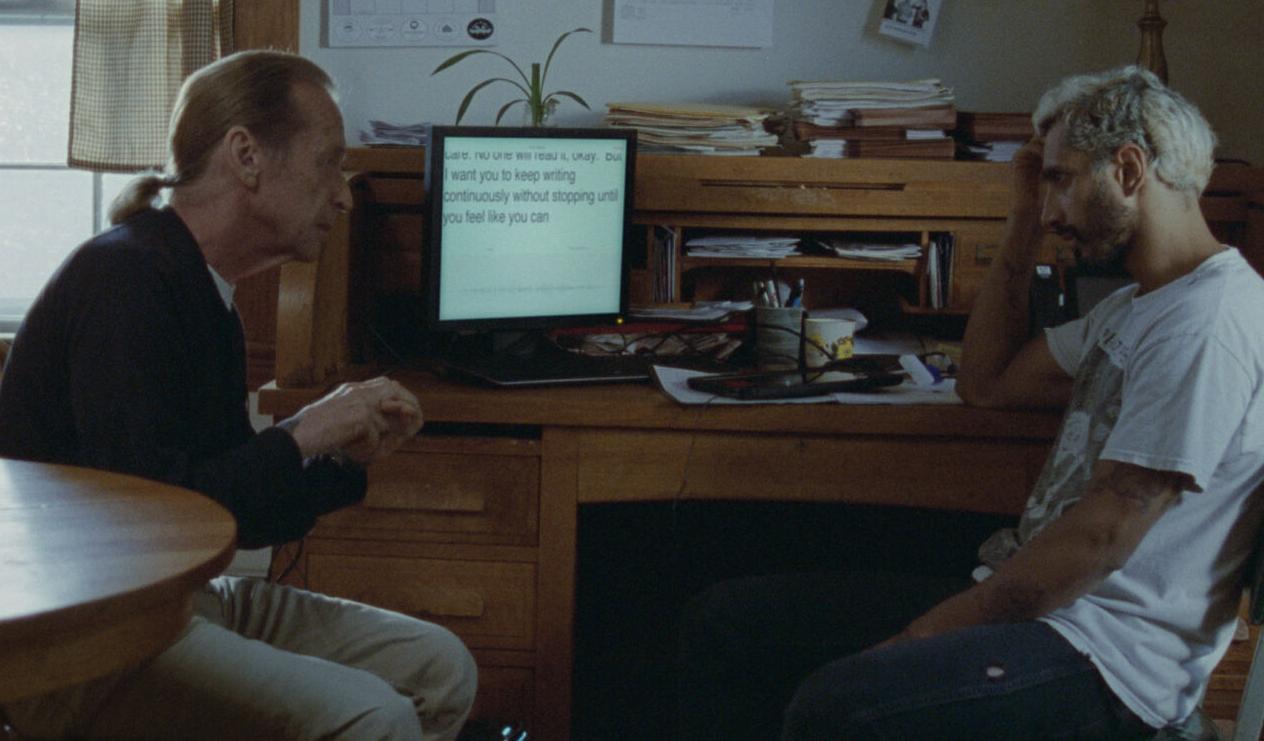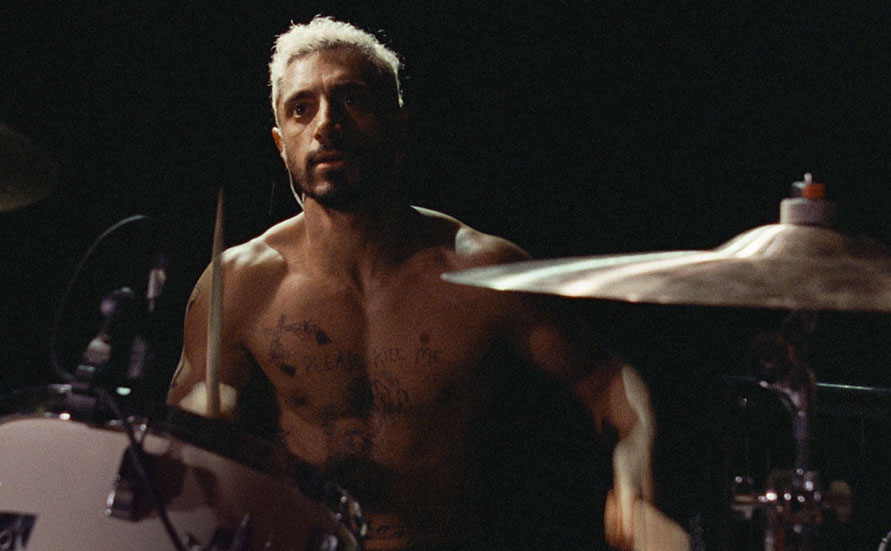Sound of Metal focuses on Ruben, the drummer for a metal duet, alongside his girlfriend Lou, who plays guitar and does vocals. Ruben and Lou’s act is extremely underground- they’re living out of an RV, with no crew except the two of them, playing shows in tiny venues to small but devoted audiences. In other words, they’re barely scraping by, but they’re loving every moment of it. However, things start to go awry as Ruben begins to rapidly lose his sense of hearing, until he is totally deaf. Unable to play the drums, Ruben joins a deaf community for recovering addicts, where he will learn sign language and be supported by other people struggling to come to terms with their new condition. Over the course of the film, Ruben is repeatedly forced to reevaluate what is important to him, and he becomes a better person as a result.
Of course, a review of Sound of Metal wouldn’t be complete without mentioning the sound design. Obviously, it’s crucial that a film about losing one’s hearing reflects this trauma, and Sound of Metal does it wonderfully. On a technical level, the balance of the sound and the effects the sound design team used to create the sense of losing hearing works perfectly. And while the technical mastery is impressive, what makes it even more impressive is how director Darius Marder (who previously wrote 2012’s The Place Beyond the Pines) manages to use this sound design to communicate emotion and progress the story. The sound of the film often changes perspectives. At times we are able to hear all sound occurring in the scene (while Ruben is losing his hearing), but at other times we are not given any sound except for the most muffled noises, putting us into Ruben’s perspective. The party scene towards the end of the film is one of the best examples of this switching- we keep shifting from one perspective to another, showing how isolated Ruben feels. Sound of Metal will almost certainly be nominated for the Best Sound Editing Oscar, and I think it’s likely that it will win.




 RSS Feed
RSS Feed
